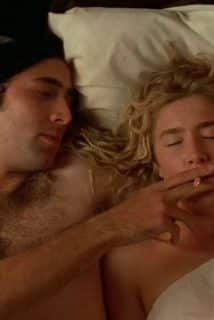Urology week – what men need to be aware of
Health
An interview with Dr Luke Pratsides about the range of health issues facing men and why embarrassent shouldn't be a barrier.
Urology Week is this week, when awareness is being raised about a range of issues facing men – issues which often we are reluctant to deal with because they’re a bit embarrassing. But, of course, this stuff, whether it’s testing yourself for testicular cancer or dealing with erectile dysfunction, is crucial for long and happy lives. We spoke to Dr Luke Pratsides – lead GP at online men’s health clinic Numan – to find out more about the key areas men should be aware of.
What is Urology Week and what are the key things people should be aware of?
The week is to raise awareness of men’s health and in particular 5 diseases: benign prostate enlargement, prostate cancer, erectile dysfunction, urinary incontinence and testicular cancer.
Benign prostate enlargement affects men who are 50 and above. The prostate is the gland that produces semen. And in every man over time it tends to get larger. In some men when it gets larger it puts pressure on the urine tube that runs through it. You can get urinary symptoms like walking up in the middle of the night for a wee, difficulty starting a stream of urine, that kind of thing.
In general this condition is nothing to worry about but you need to be sure it’s not something more sinister like something growing like cancer in the prostate. So it’s important to get that symptom checked out. What would usually happen is you’d get blood tests, urine tests, and then having their prostate examined by a GP which involves a finger in the back passage – isn’t the most pleasant of things but can give an idea of a nice smooth normally enlarged gland or something that’s cancerous, which tends to feel craggy and rough.
Prostate cancer is a very common cancer. They say the majority of men, if we all lived to 90, would have some form of prostate cancer just because of the nature of how the prostate is always growing and the increased chance for error in the cell division making a tumour. But it’s eminently treatable most of the time if caught early.
For younger men, I’d recommend they check their testicles at least once a month. If you ever find anything you find worrying I’d advise men to make a GP appointment and get it examined, The majority of the lumps on the testicles are nothing to worry about – cysts, and enlarged blood vessels – but if its testicular cancer you want to catch it early before it spreads anywhere. Usually with surgery and chemotherapy it’s very treatable.
And then erectile dysfunction is important to talk about. There’s shame about it and it can have an impact on a man’s life. You can get medication to easily treat it, sildenafil, otherwise known as Viagra, but there’s lots of other ones like Tadalafil, another main one which we sell at Numan.
But it can be a sign of something underlying, like high cholesterol or diabetes – these can cause erectile dysfunction but it damages all the blood vessels and it can be a worry when it damages the bigger blood vessels in the heart or brain – causing a heart attack or a stroke which can be life threatening.
It’s always worth getting these things checked out and being involved in something like Urology Week which helps men feel they can raise the issue.
Erectile dysfunction affecting is reportedly affecting younger men than before – have you seen this?
I work in east London in the Olympic Park and its quite a young group of patients. I do see more younger men, late 20s to late 30s, coming in and thinking about erectile dysfunction. Often they are down to a mental health issue – stress, or performance anxiety in a new relationship.
My own personal view is there’s a lot more pressure on men to be a certain way, to look a certain way, in terms of their bodies. Sometimes that puts extra pressure along with all the extra work pressure they have.
Have you seen a shift in younger men talking about health in general?
I definitely think younger men talk more about healthcare. I think it’s because things like preventive health to stop chronic disease and mental health are quite widely publicised. People feel more comfortable talking about it but certainly in older men it’s still an issue. 50 and above.
An older men, in his 60s, came to me twice with a shoulder problem. He was quite physically fit and he had no shoulder problem when I saw him, but I thought maybe it’s me! I called him back from a follow up and told him his shoulder was looking perfect and he said actually I’m really struggling with my son who’s having mental health issues and causing a lot of stress on the family. It was like he thought he had to come with what he saw as a legitimate problem, a shoulder that wasn’t actually an issue, in order to talk about something that was more sensitive to him.
I do see that a lot. With things like erectile dysfunction men often come in with something completely different and then chuck it in at the end of the consultation. These should have their own consultations because you want to look at any underlying causes, like diabetes or any deformity of the penis you want to be examining them, and checking blood pressure.
Also Numan is an online pharmacist for treatment for those problems, and we are trying to expand to become more of a holistic clinic and one of the first steps on that is about investigating the underlying causes of things like erectile dysfunction. I’m hoping we can become a more general health clinic almost like a GP surgery where you can discuss any health problems.
The idea is to make it all more accessible to men?
Yeah it’s well researched that men don’t access health care very often or great continuity. I think there’s a mixture of reasons about that, some of it is cultural – particularly around these more sensitive subjects like erectile dysfunction because it’s a bit embarrassing or seen as less manly or somehow shows weakness. So men often don’t want to talk about it with partners let alone healthcare professionals.
Another part of the reason is accessing traditional healthcare is quite an arduous journey for anybody, no matter what you’re going to discuss. It’s always challenging to get an appointment, you have to sit in a waiting room anxiously, and then go and explain yourself to a complete stranger. The idea behind Numan is you can jump straight to the point and take action in a more seamless way.
With erectile dysfunction you have to fill in an online questionnaire about other health conditions and suchlike, and then if its approved you get your script, so you don’t have to speak to anybody if you don’t want to and you can do it anytime of the day or night.
I imagine this trend is important at the moment because people are very reluctant to go to their GP because of the coronavirus?
It’s certainly caused a great uptick in digital consultations. But I imagine it’ll be here to stay because people generally find it a lot better. And actually putting people through the digital route frees up time across the whole system for more consultations for people who aren’t digitally savvy.
What things in general men can do to support their health?
For me exercise is the big thing. With our modern lives, most men are stuck at a computer -that sedentary lifestyle isn’t good for anybody.
Cardio-vascular health, heart disease, strokes, developing diabetes can be issues – there’s even big research saying sedentary people are more at risk of cancers.
Even getting the recommended amount – half an hour of moderate intense activity for half an hour five days a week – can make a difference. A brisk walk somewhere.
Or two hours split across the week of high intensity exercise where you’re out of breath.
It’s difficult to build into people’s busy weeks but even if you build in half of it, it’s still going to have an effect.
Also when you exercise you get endorphins to help your mental health, you feel stronger and also we have to be thinking, for the middle aged men, you’re losing muscle mass as you get older. From your 50s to your 70s you’re going to be losing a lot of your muscle mass which will reduce mobility and that can lead to injuries and increase the risk of death generally.
Exercise as much as you can throughout your life and you’ll stand yourself in good stead for when you’re older to have a stronger body and allow you to be more independent, more mobile, for longer.
Download Numan‘s Book of Erections for further information: https://book-of-erections.s3.eu-west-2.amazonaws.com/numan-book-of-erections.pdf
Trending

Join The Book of Man
Sign up to our daily newsletters to join the frontline of the revolution in masculinity.


















